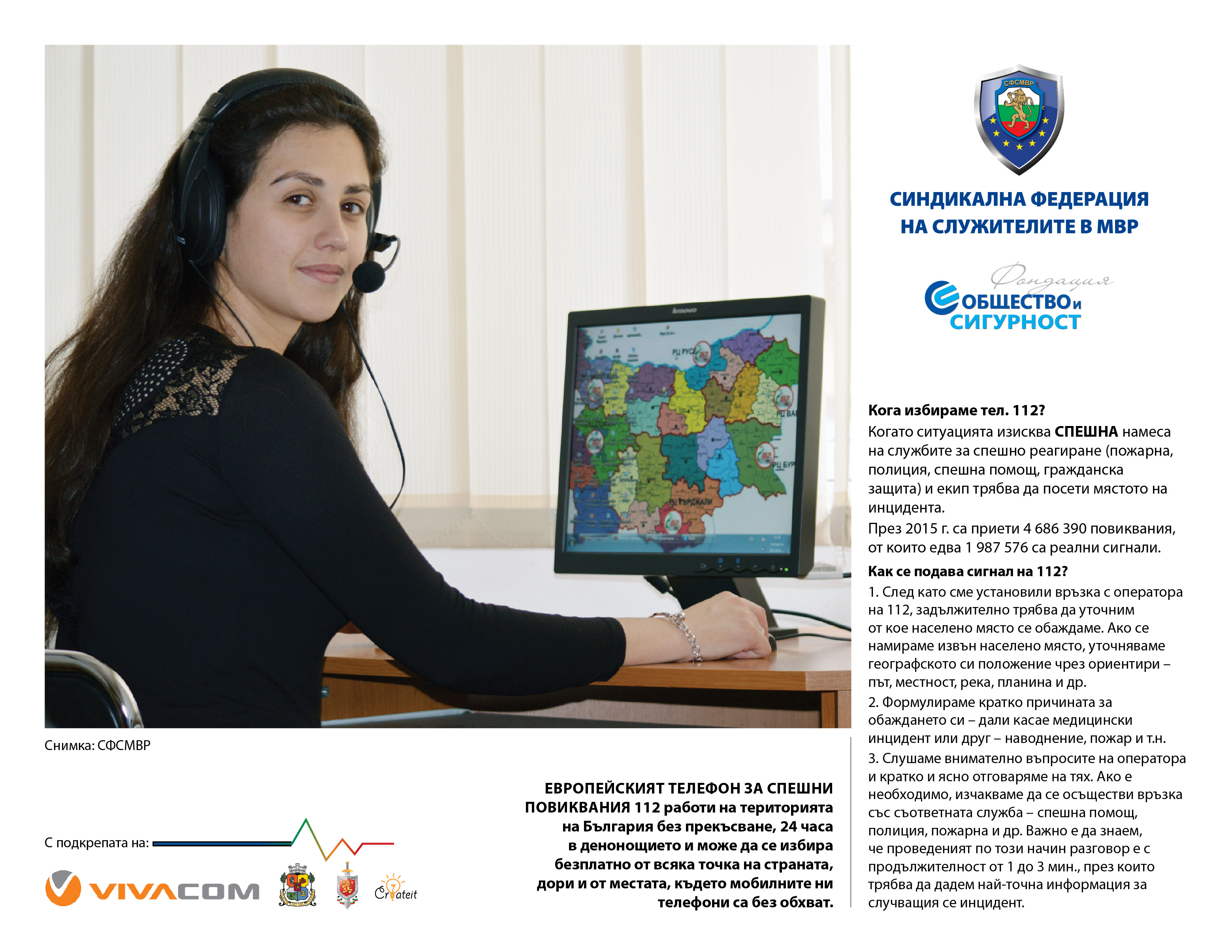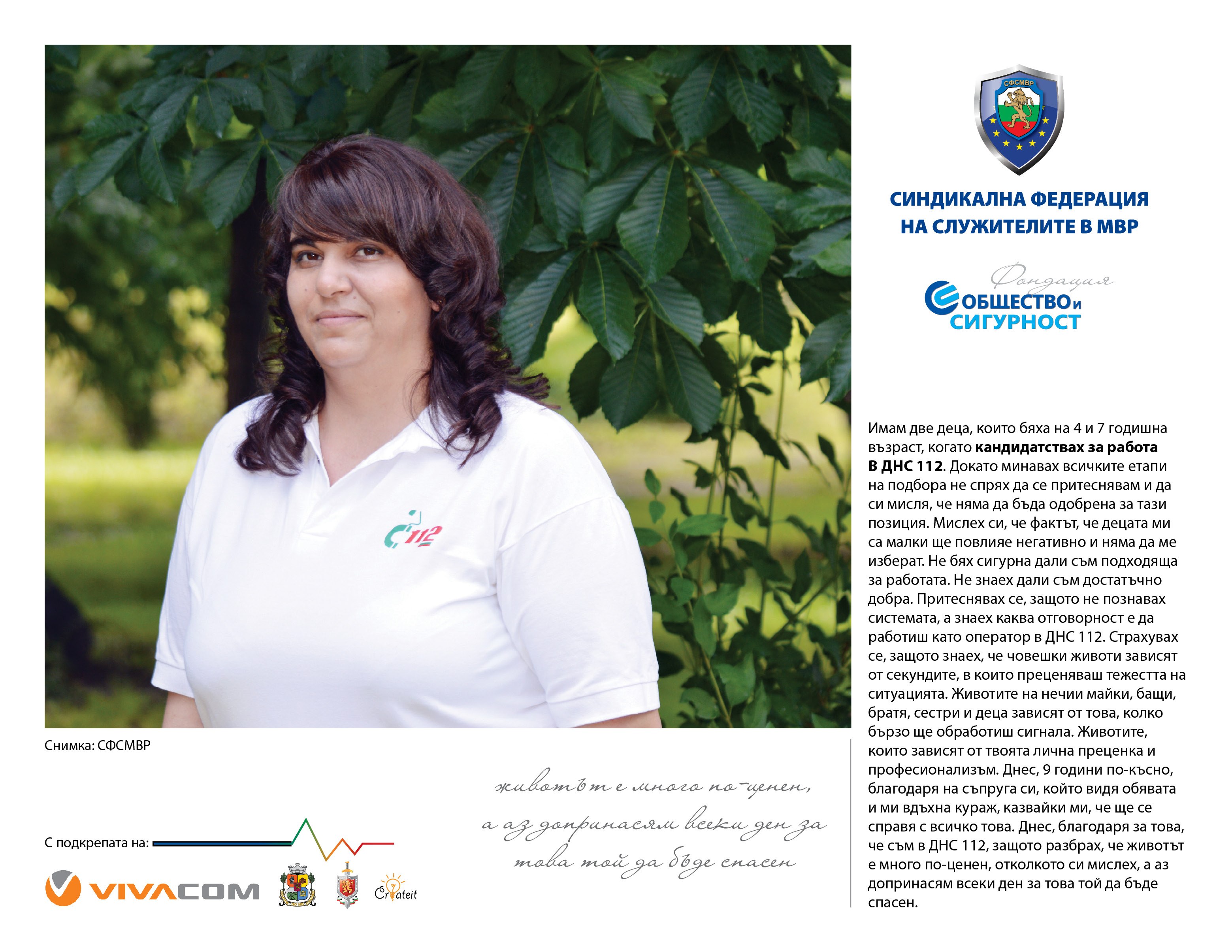- 25.01.2017
MoI: in cervice of people or politicians?
If any government had been replaced it always brought ad hoc and politically motivated changes. These changes are quite often and the main reason for the occupational stress and insecurity about their jobs among police officers, firefighters, rescuers and all workers in Ministry ot Interior. It has been said that…
- 01.09.2016
The detained foreigners in Bulgaria…
- 01.09.2016
When we have to call on 112?
When we are calling on 112? When the situation requires URGENT intervention of the emergency services (fire brigade, police, emergency, civil protection) and a team have to be sent at the accident. How to report a sygnal on phone 112? 1. As soon as you have contact with the operator…
- 01.09.2016
I work in National System 112
I have two children who were 4 and 7 years old when I applied for a job in the 112 Emergency line in Bulgaria. While I was passing all phases of the recruitment I worried and was sure I will not be approved for this position. I thought that my…
- 15.02.2016
Let’s talk about Ministry of Interior by facts
In 2015, 3168 people have left the Ministry of Interior. More than 2/3 of them are working at field and are at operational positions. From all employees quit the system 1 is a senior, 466 are managers, 688 of are at executive and 2013 are at junior executive positions. 444…
- 15.01.2016
Official position of the Society and Safety Foundation about the Minister of Interior’s statement
Society and Safety Foundation is one of the few civil organizations in Bulgaria which puts as a priority on its activities the improvement of the “civil security” service provided by the Ministry of Interior, which is directly linked with the improvement of the quality of work and working conditions in the MoI’s system. Regarding…
- 13.02.2015
How do we see the participation of civil and professional organizations in Ministry of Interior’s reforming?
The most important element of the whole process is institutionalized of forms and procedures for citizen participation in reforming the Ministry of Interior. The second crucial component is uniting around the need to prepare a long-term strategy to reform the Ministry of Interior, to be adopted as the Ministry of…
- 03.02.2015
Citizen participation in MI: Mission (im) possible!
The main issue which united representatives of trade unions, professional organizations and NGOs in terms of public order and security, is that the “security” service provided to citizens, is not effective and does not meet their needs. The discussion about the parameters and expectations of what should the service be…
- 03.02.2015
The failed reform!
Ministry of Interior is the only unreformed Ministry in Bulgaria, but also one of the ministries in which structural changes are the most numerous. One of the major structural changes that contribute the MoI to become a mega-ministry is the closure of Ministry of Emergency Situations and merger it with…
- 03.02.2015
Why it is necessary and important in the whole process of reforming trade unions to participate?
Reforms that are realized at the time, as mentioned, are parceled and ineffective. Reforms in the Ministry of Interior needs to be long-term, have consulted with civil and professional organizations, to explain the effect of a change in the life of every citizen and employee in the Ministry of Interior,…




